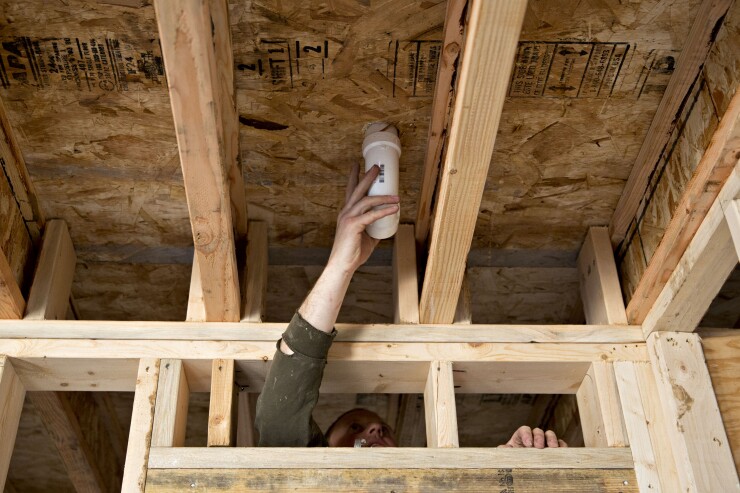Water damage from pipe faults was the second-leading cause of homeowners' insurance claims in 2016, according to the Insurance Information Institute -- and thanks to digital disruption of the industry, it's also one of the easiest areas to begin to reduce that burden on carriers.
That's because there are often small signs that a problem is on the way, which can be detected easier than ever by rapidly advancing sensor technology. And so, many companies that make that kind of hardware are targeting the insurance sector as a way to demonstrate the value of their services.
Current partnerships are limited and often amount to affinity agreements. But there are also more robust pilots in play, where insurers use the data gleaned from these installations to refine their underwriting metrics.
"In the future, insurers are going to shift from being only there to repair [after an event] to using all the data that's coming available and help homeowners prevent water damage," says Mariel Devesa, head of business development for Phyn, a water sensor company founded by technology company Belkin and HVAC congolomerate Uponor.
Devesa, who joined Phyn in June 2018, is well aware of the ability for connected technology to shake up the insurance industry: She last worked as head of innovation for Farmers Insurance and was instrumental in launching, among other initiatives, the carrier's usage-based insurance program Signal. In her new role, she will be exploring partnerships, including with insurance companies.

"As more data is received and more incidents happen, having an impact in reducing those instances from happening altogether will be meaningful" to insurers' bottom line, she says.
Phyn's hardware launched in January 2018, two years after the company was formally created. However, Devesa notes that the technology is based on more than 10 years of R&D and 10 million events. The item attaches to the water main in a house and uses machine learning to understand the standard flow of water in that home -- specifically, how the pressure changes when a toilet is flushed or a washing machine is on. It then can alert homeowners to any fluctuations in the standard pressure and alert them to a potential leak in progress. It can also shut off the water flow if there is a leak.
The technology offers a similar range of capabilities to a product from another company, Flo, which announced its entry into the insurance sector June 12.
Flo's HomeProtect subscription service, while not an insurance product in the traditional sense, indicates the confidence that the company has in its ability to prevent claims: Among the key benefits that HomeProtect subscribers get is a refund of up to $2,500 on their home insurance deductible if they have a water loss while Flo is installed.
Other benefits include proactive monitoring by Flo’s support team and life chat support, which includes a concierge system to answer questions about any aspect of the client's home's plumbing. HomeProtect also gives customers advanced analytics besides those that come standard in the app. Gabriel Halimi, CEO and co-founder of Flo Technologies along with his father, says that providing service and answers, in addition to raw data, is important to the tech's value proposition.

"It's not enough to just give people alerts -- plumbing is a black box for most people," he says. "Having alarm-style support, something they can call for plumbing, is crucial."
Though their companies are focused on mitigating water claims, both Halimi and Devesa agree that as more smart devices are deployed in homes, there will be more of a demand for combined data and information sharing across non-competitive items.
"It gets back to the consumer. How do they want to interact?" Devesa says. "There could be some that only want one connected device, or they want a full vertically connected home service. Ours is simple and works with either."
"Our tech helps make the entire home smarter," Halimi adds. "A flush of a toilet is a good indicator that someone is present. That data could be valuable to the alarm system, for example, We're ready to prevent all kind of loss by working closesly with other IoT solutions and insurance companies."






